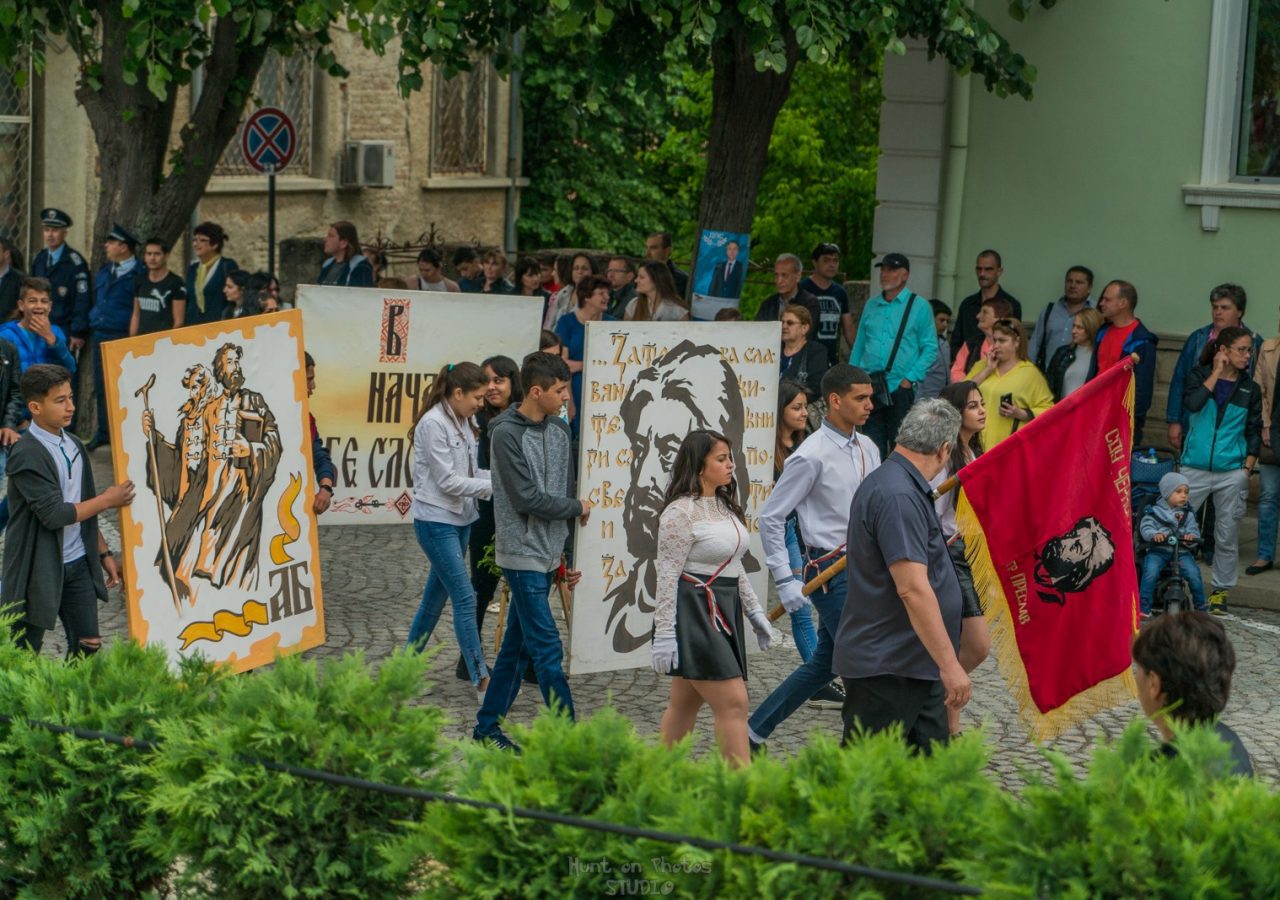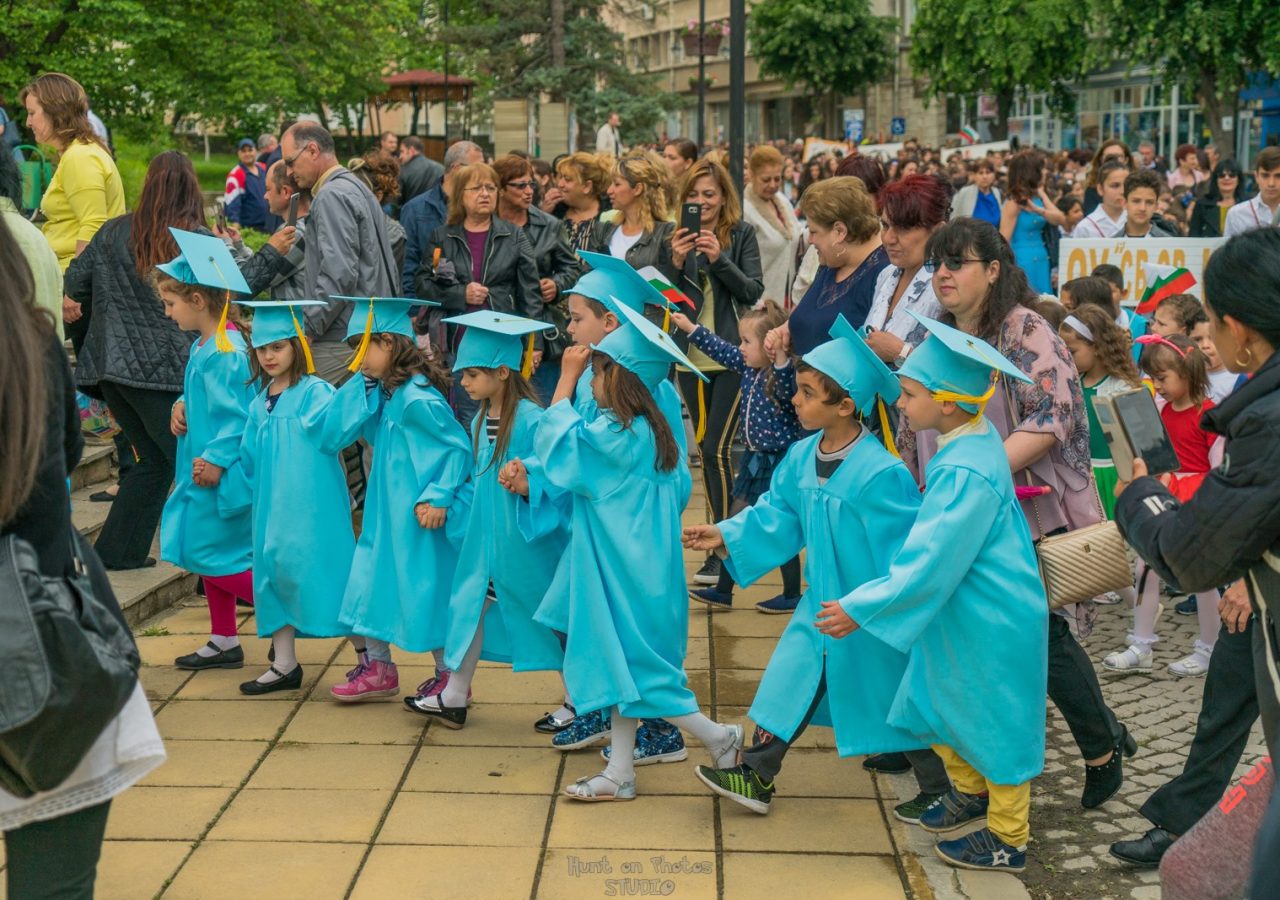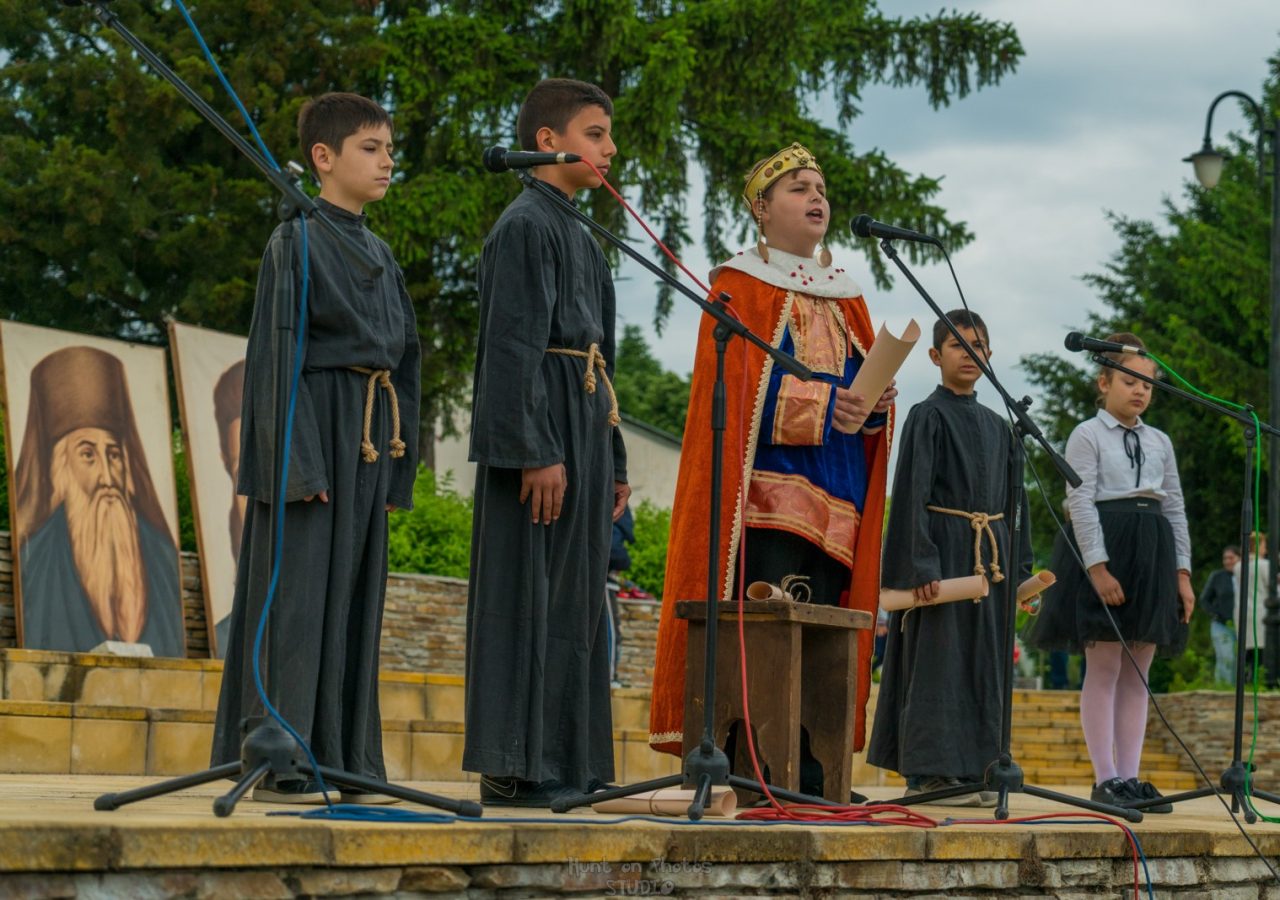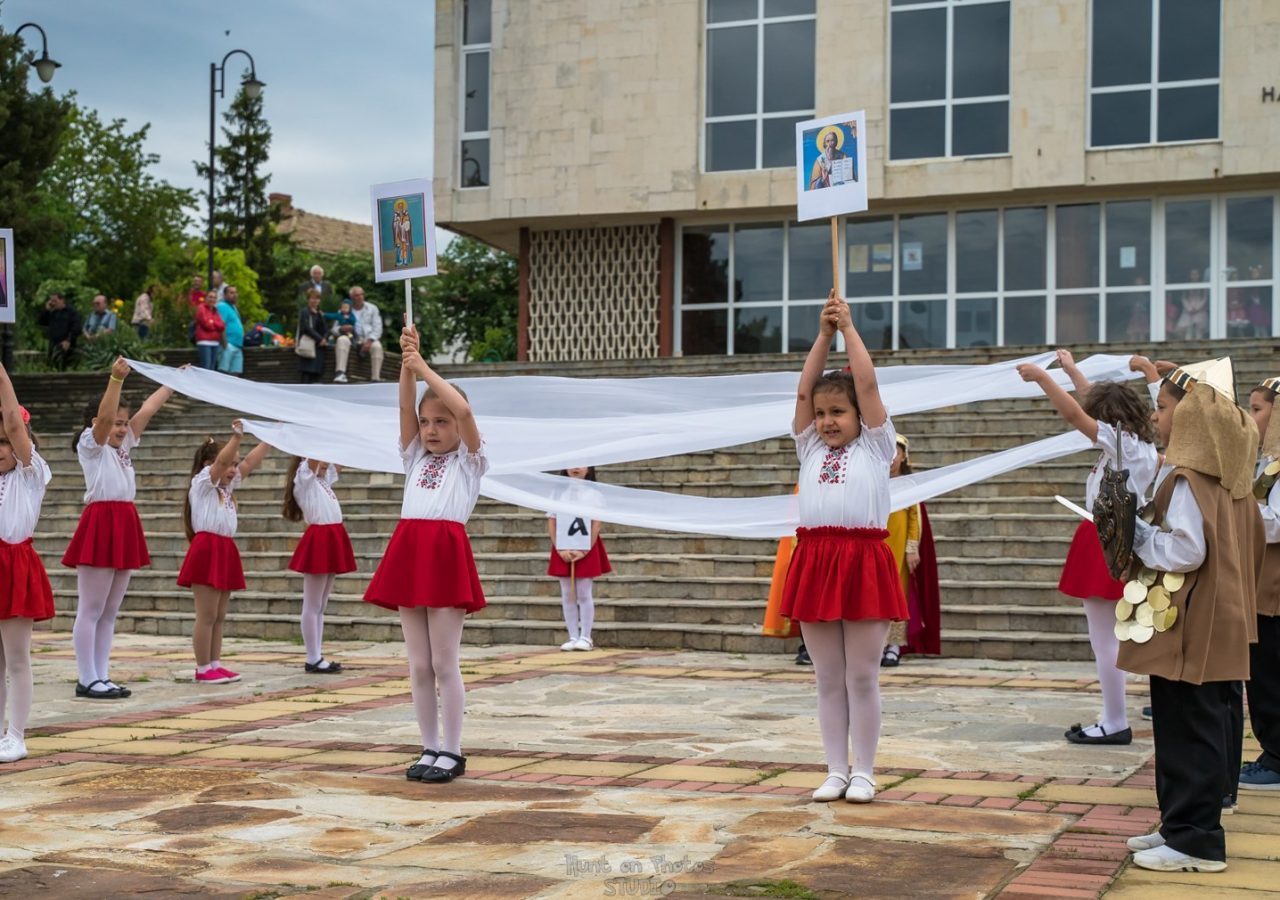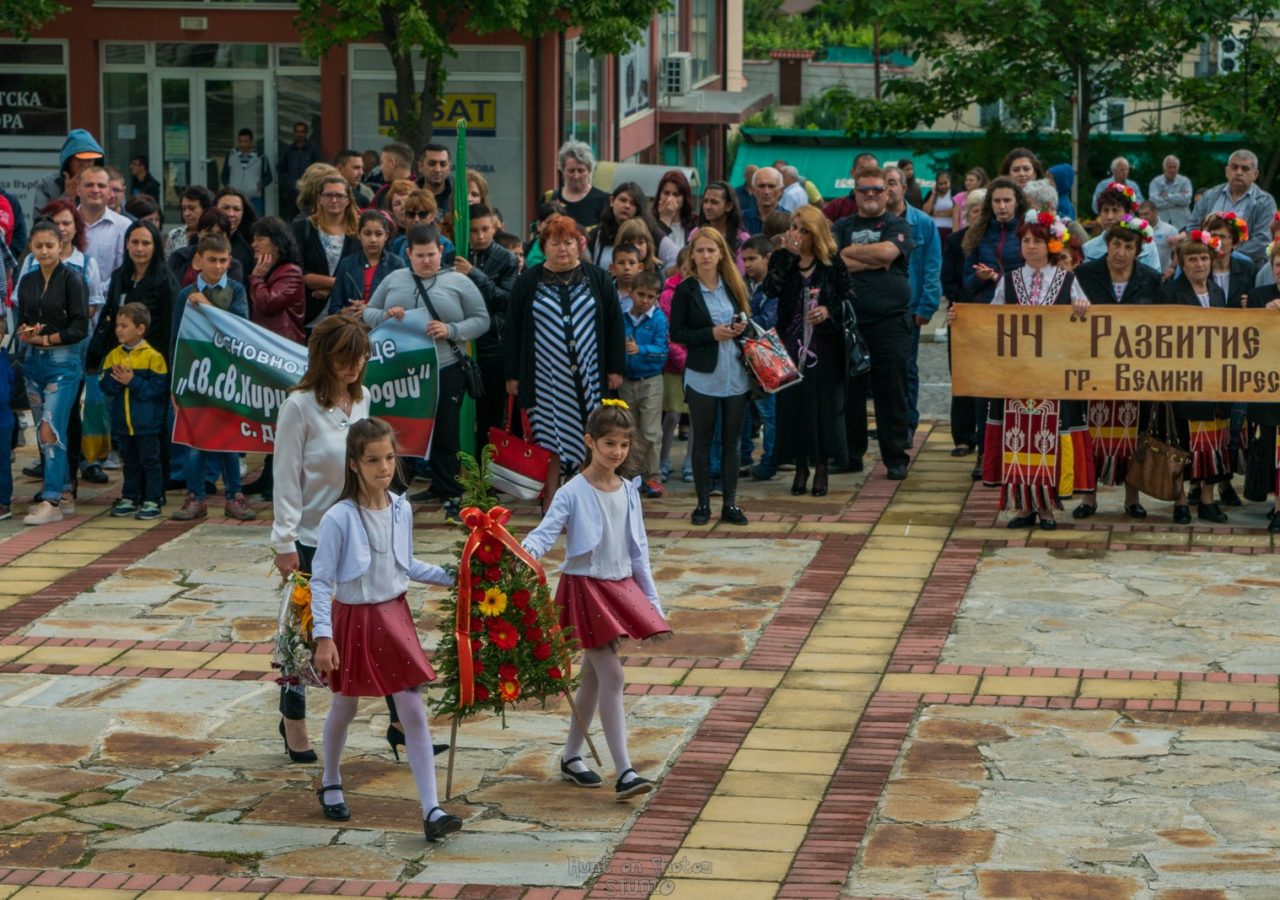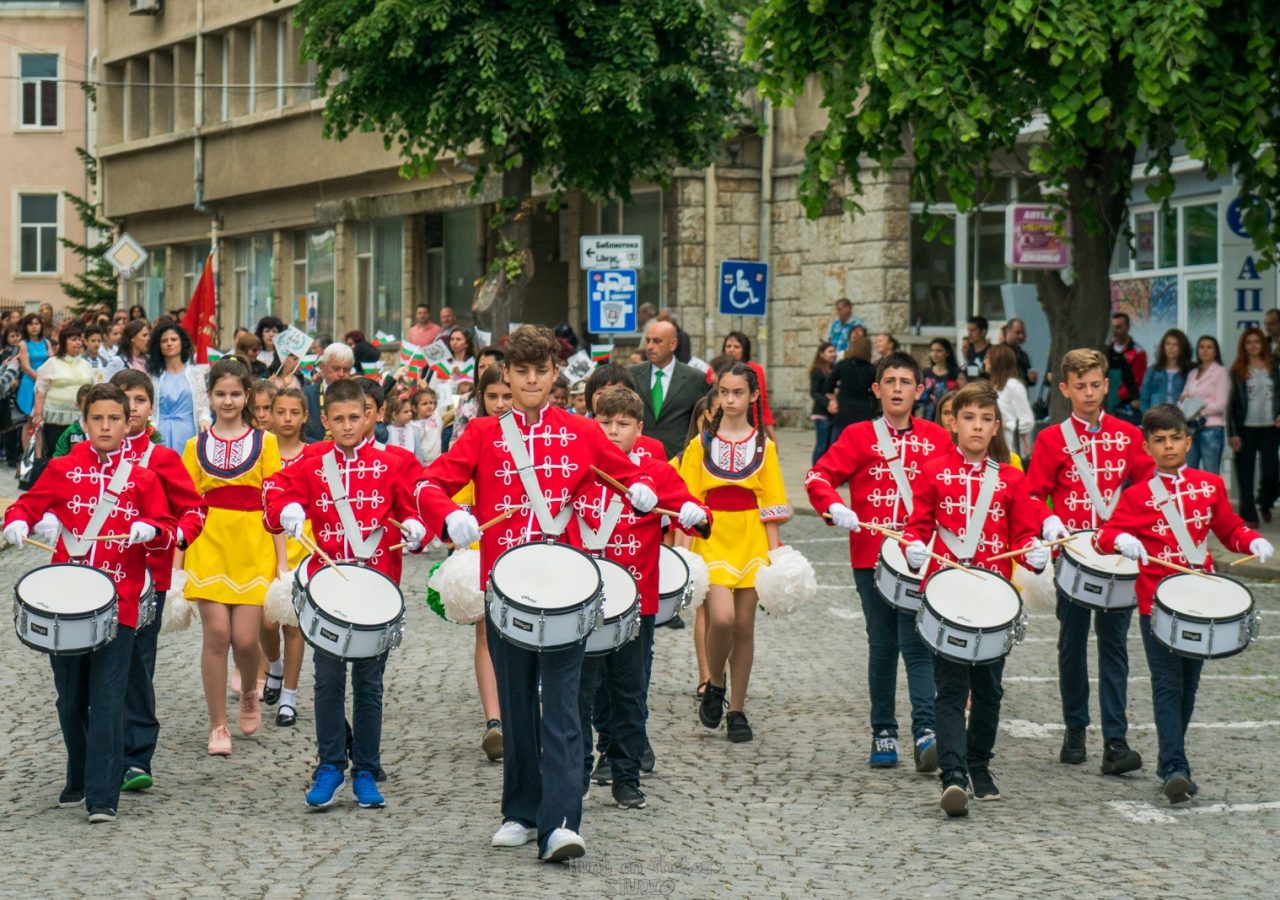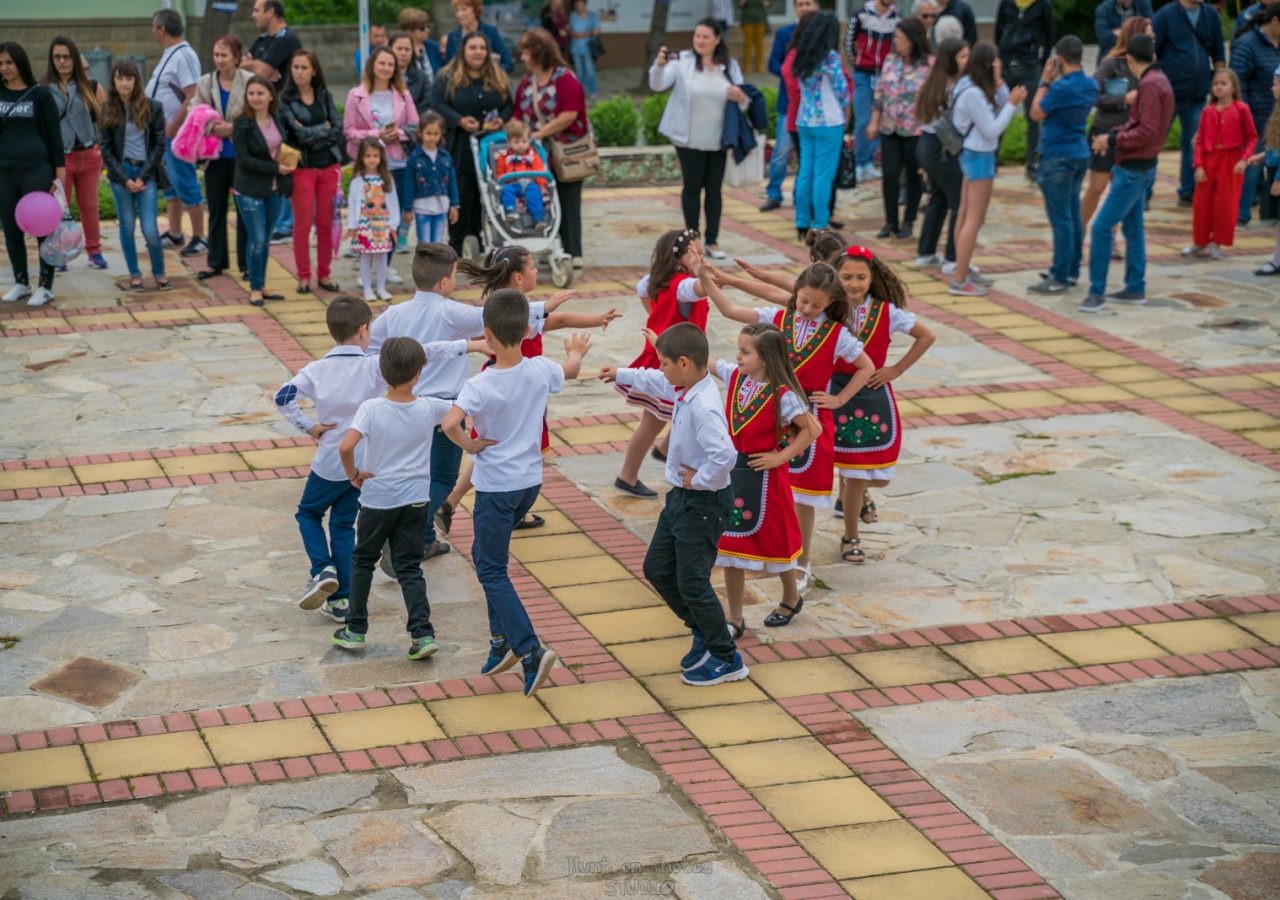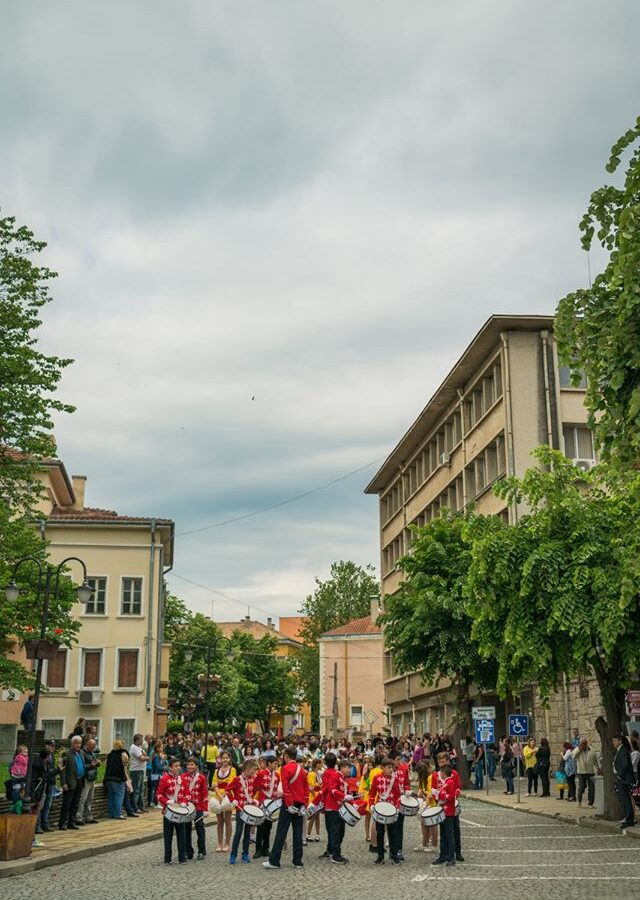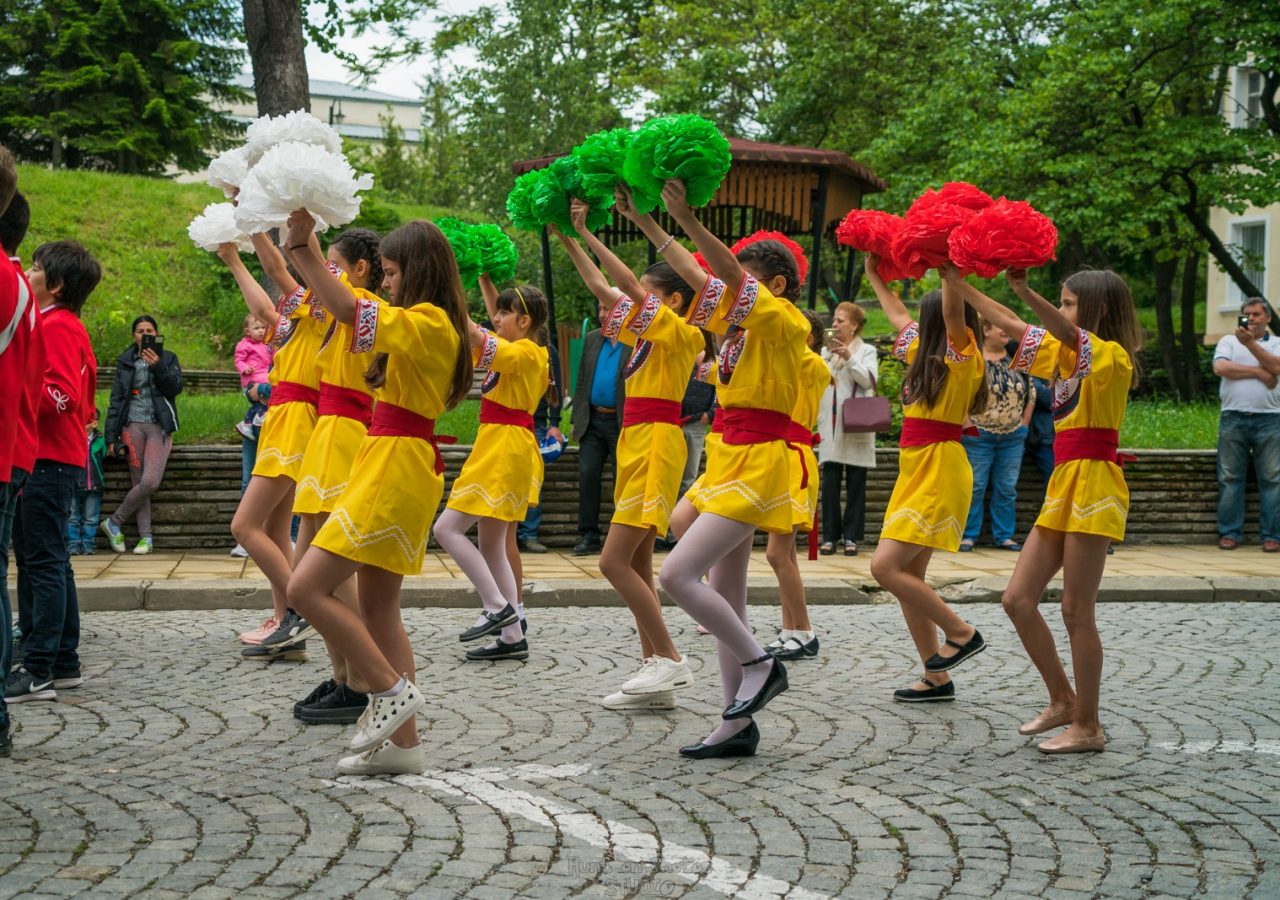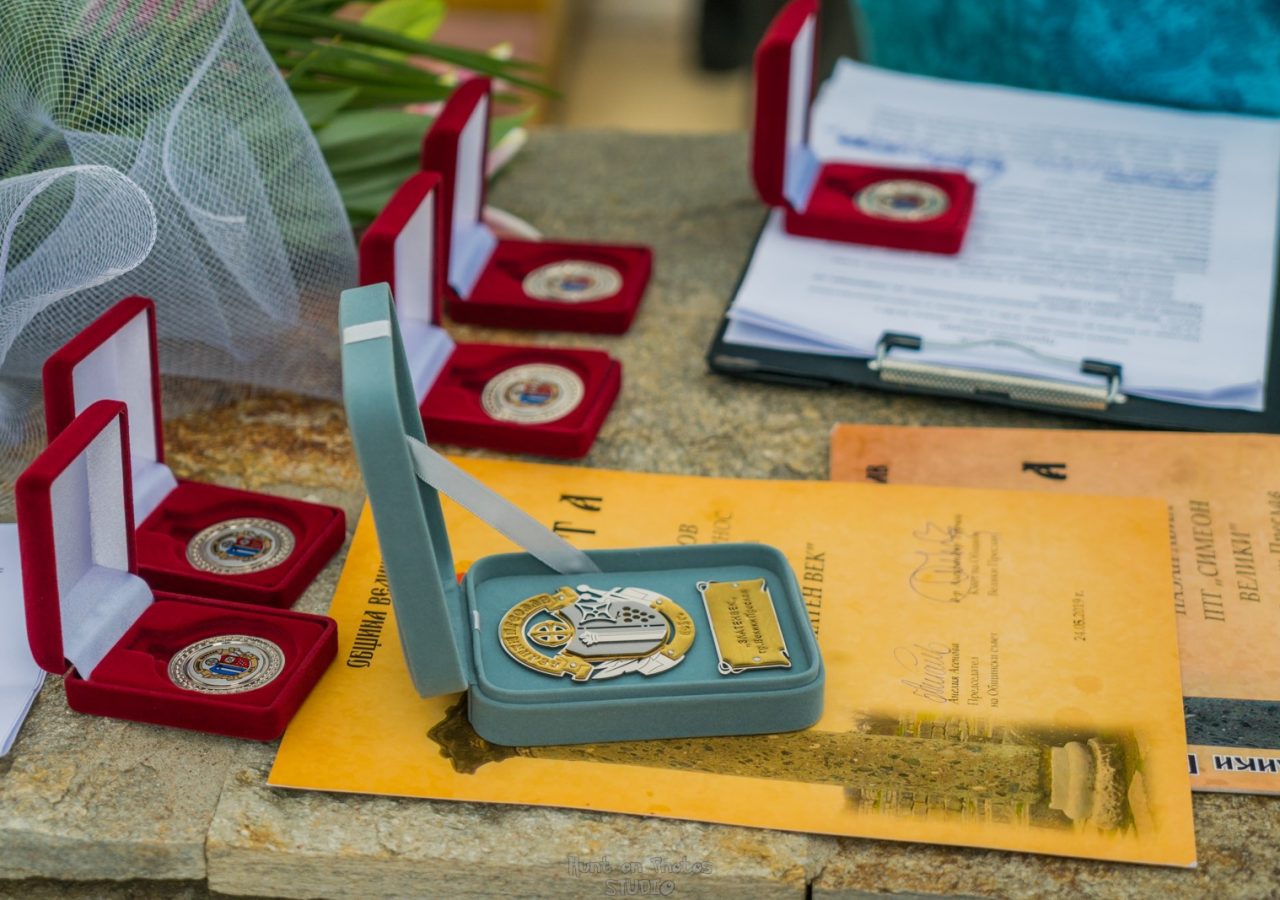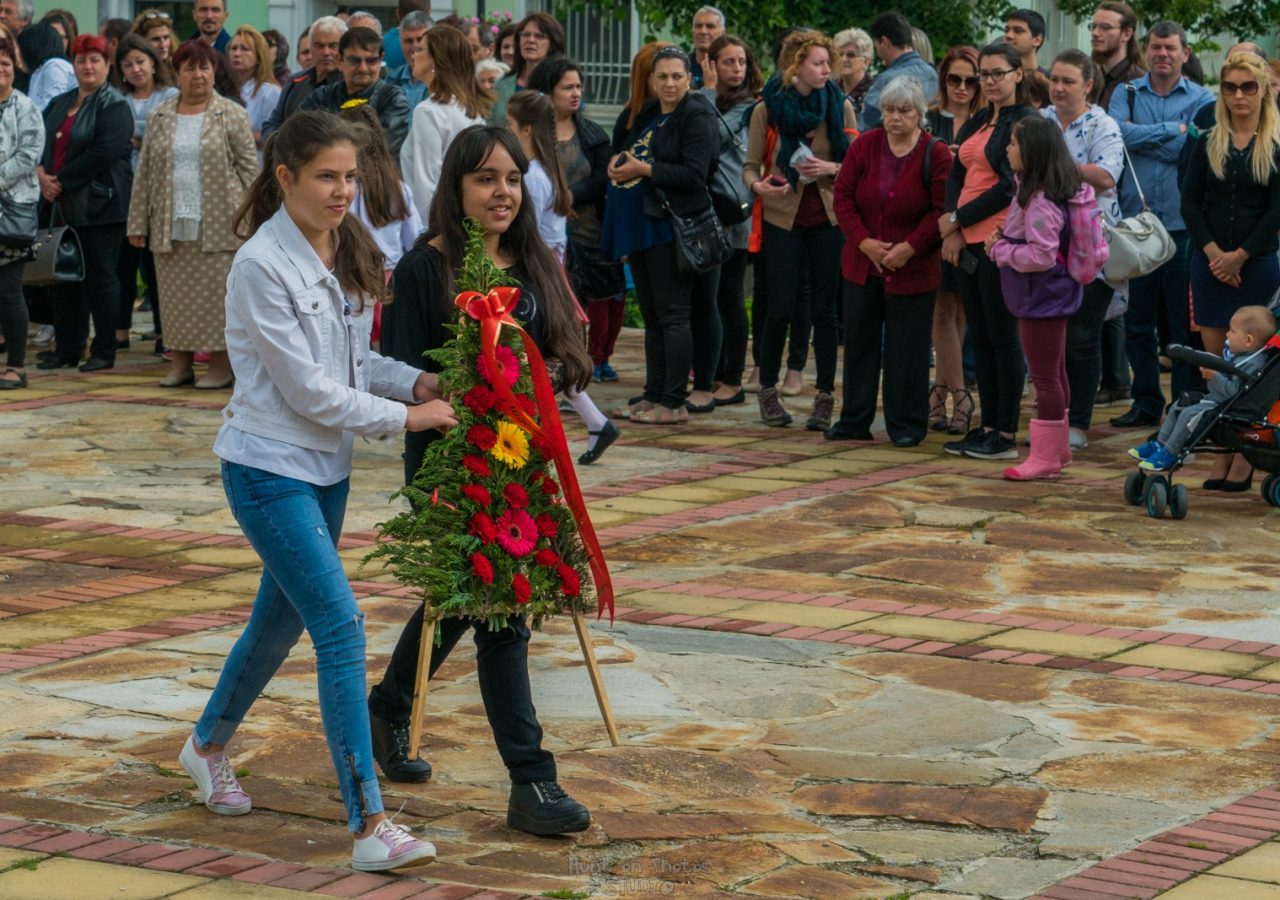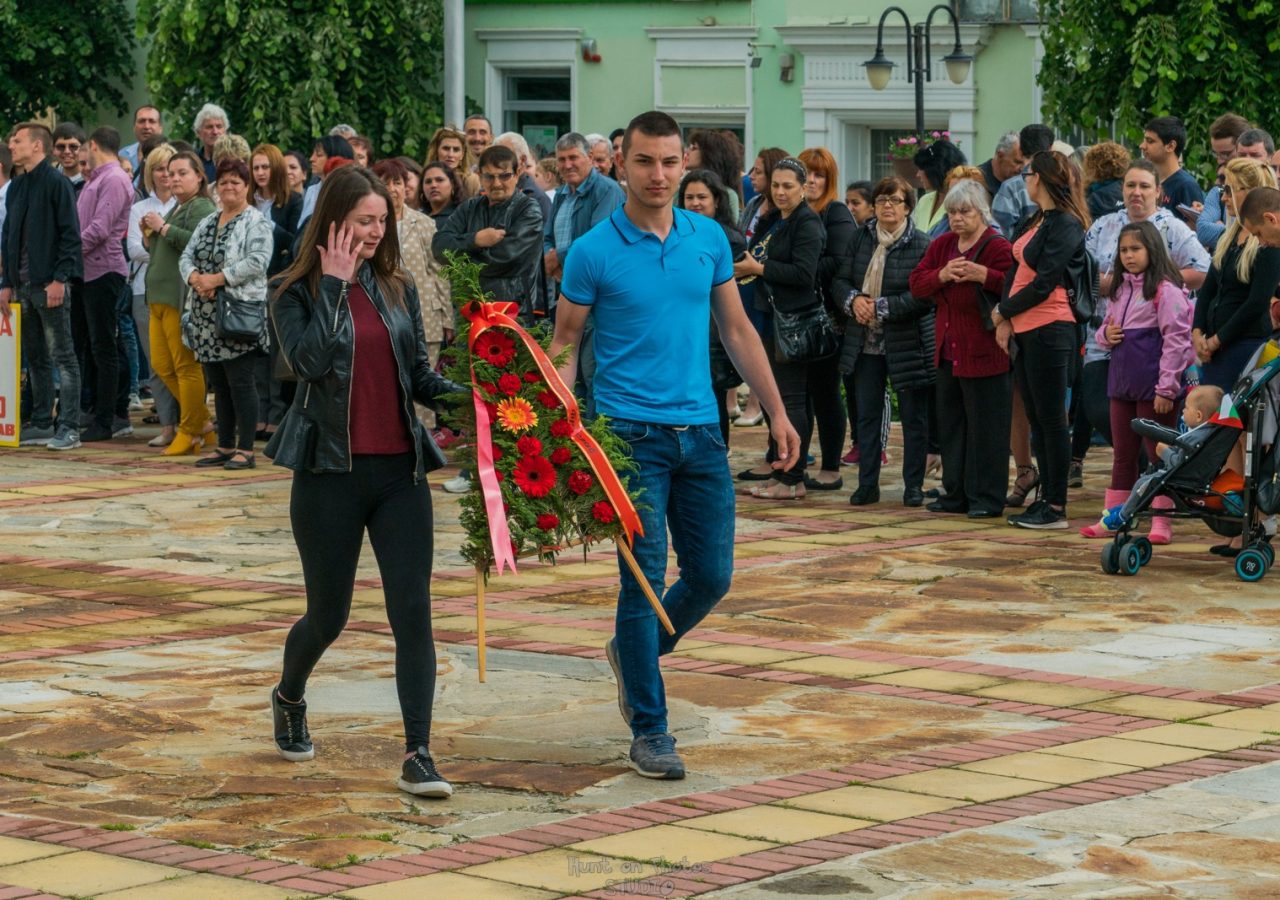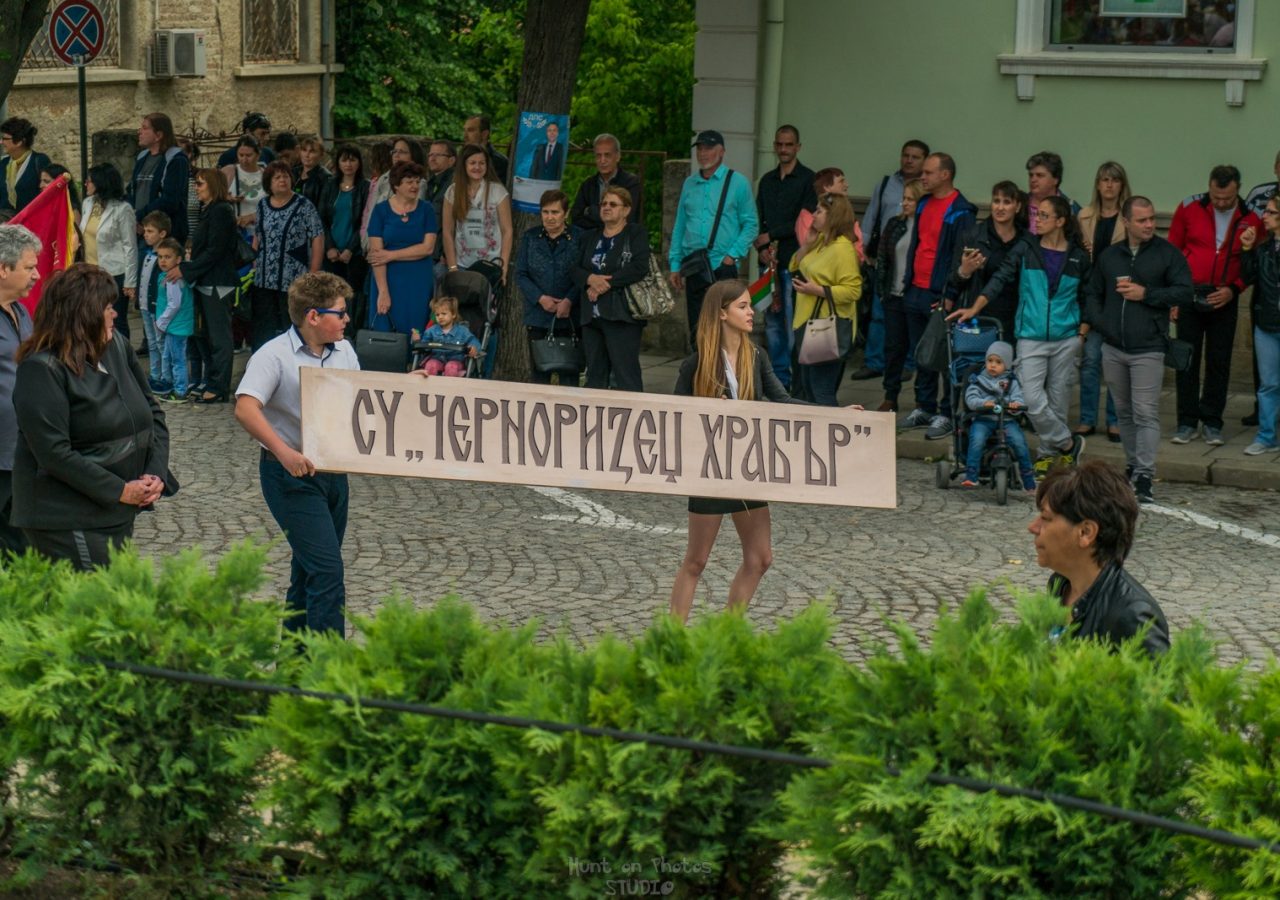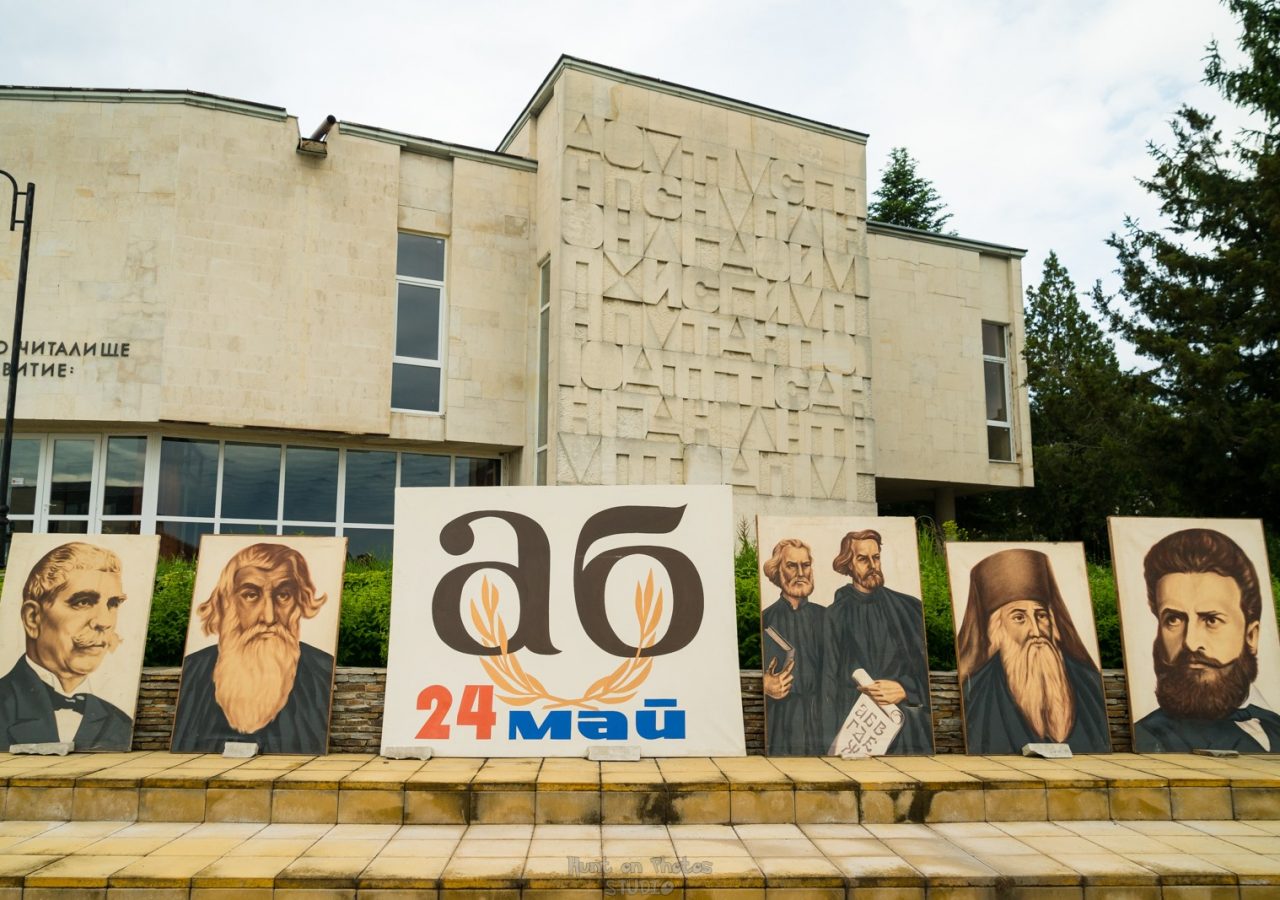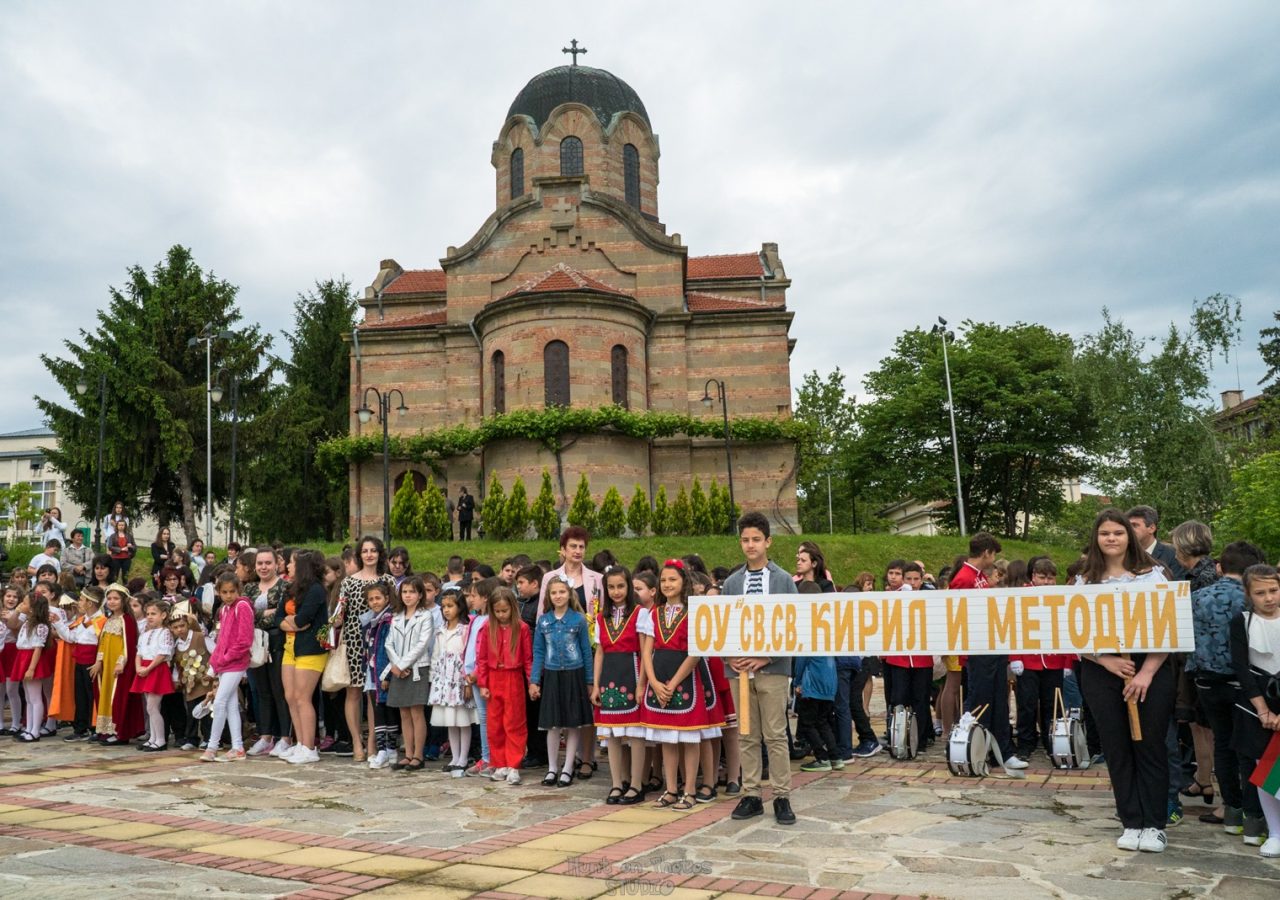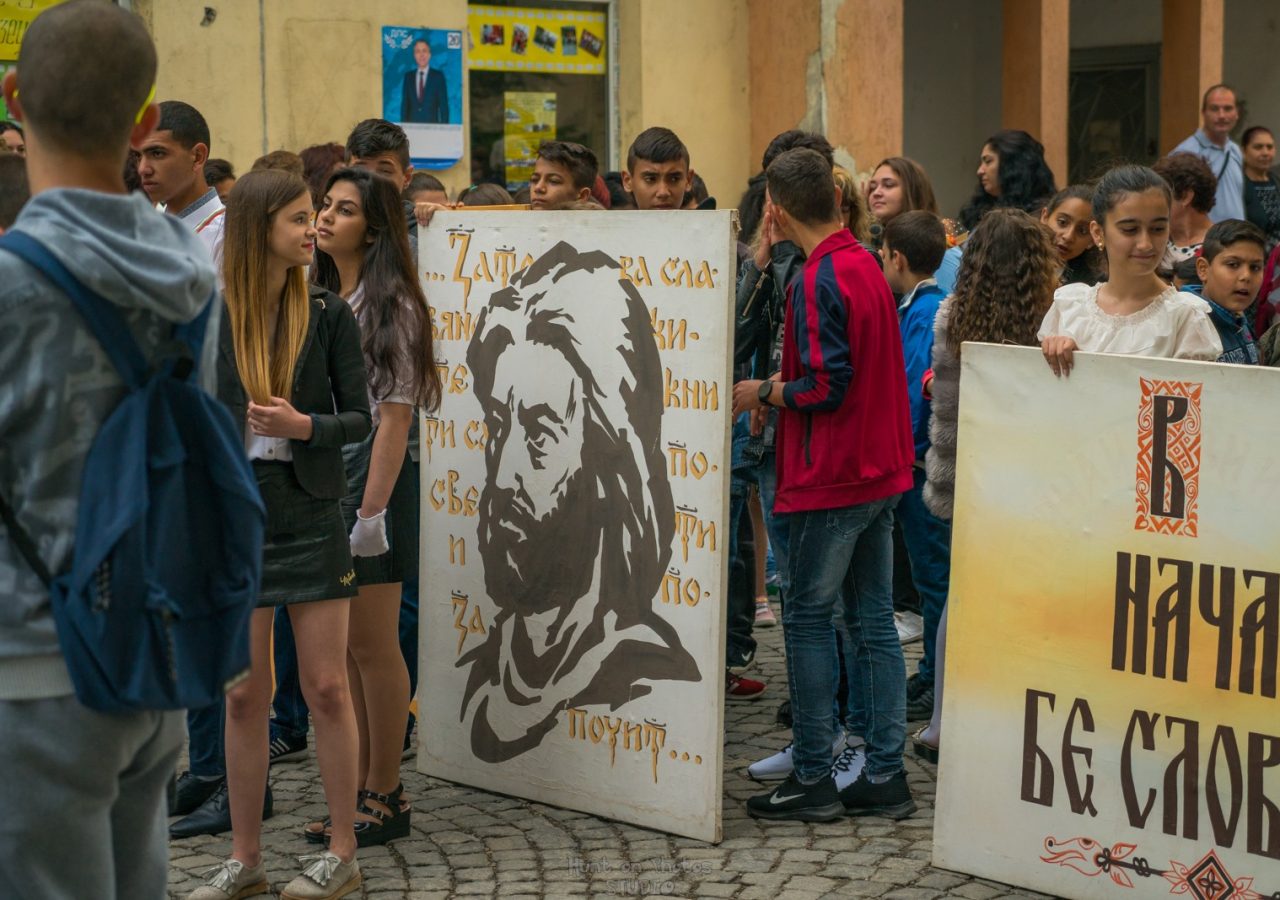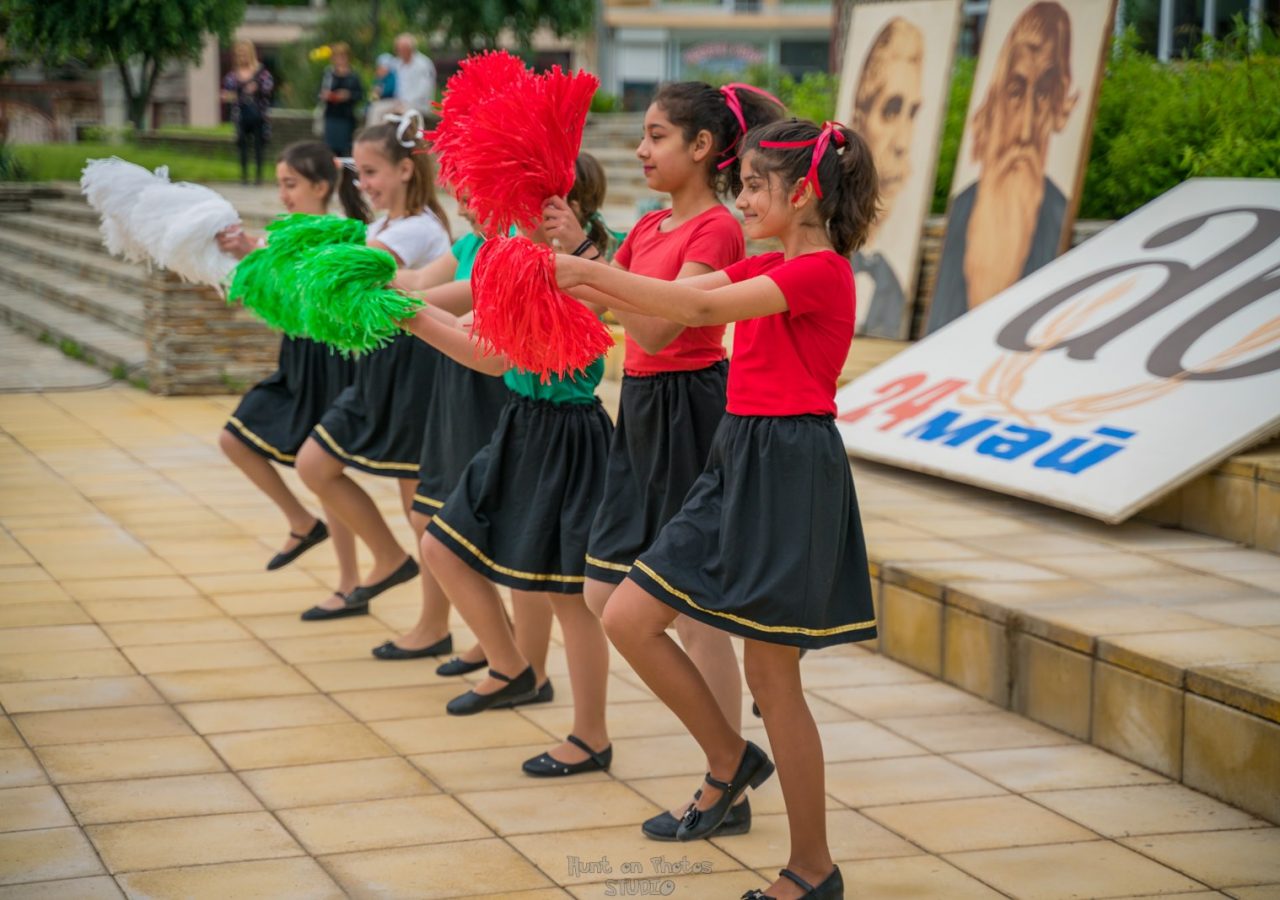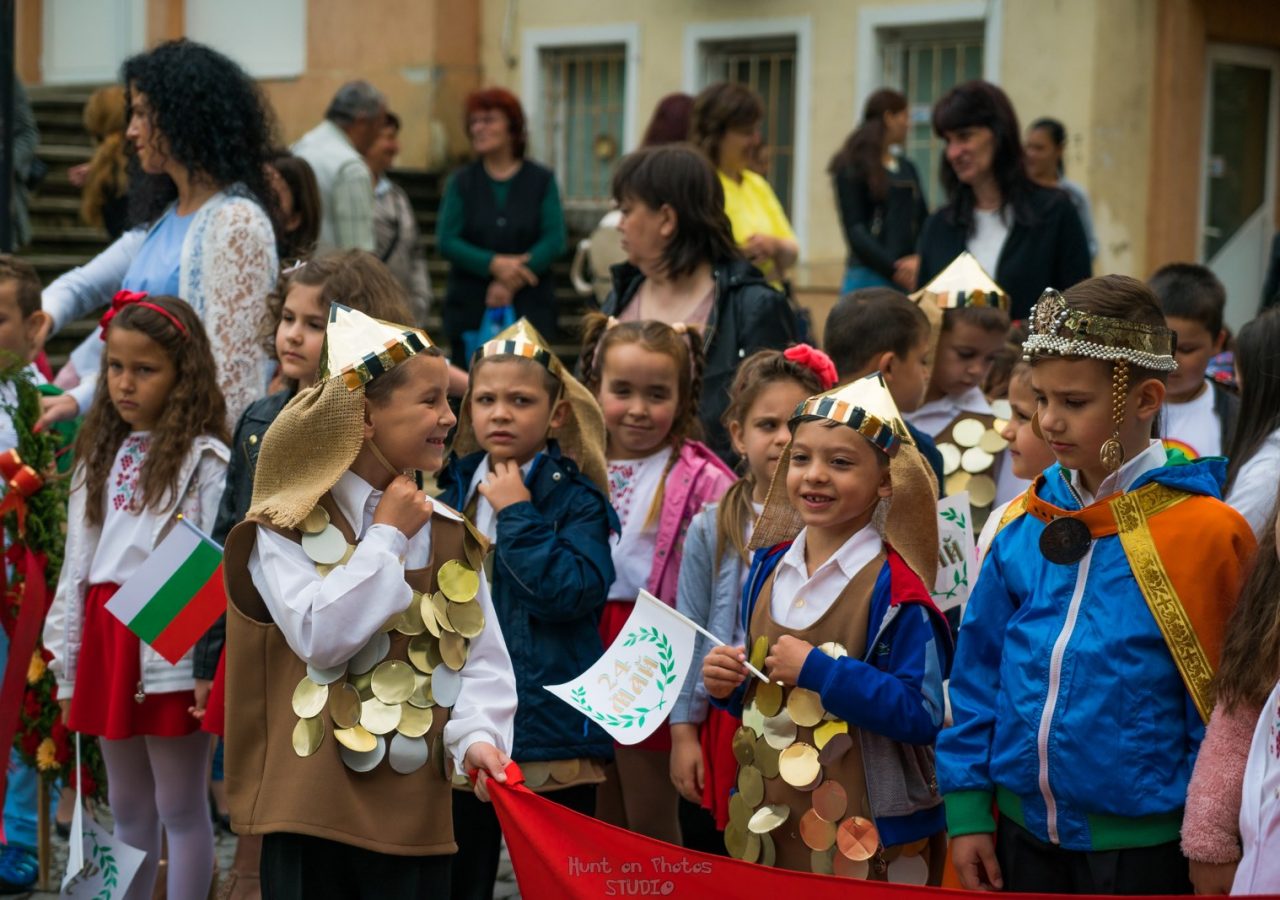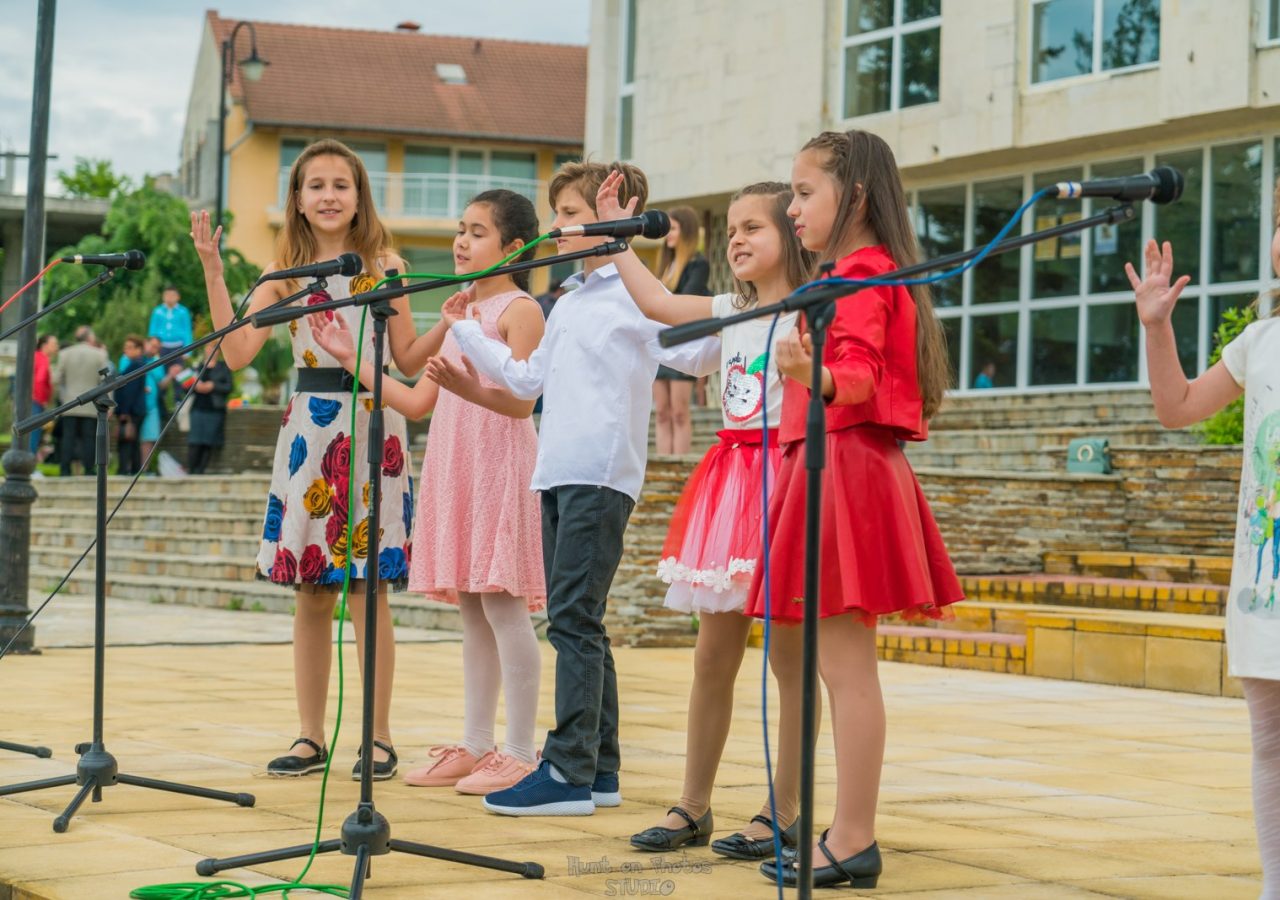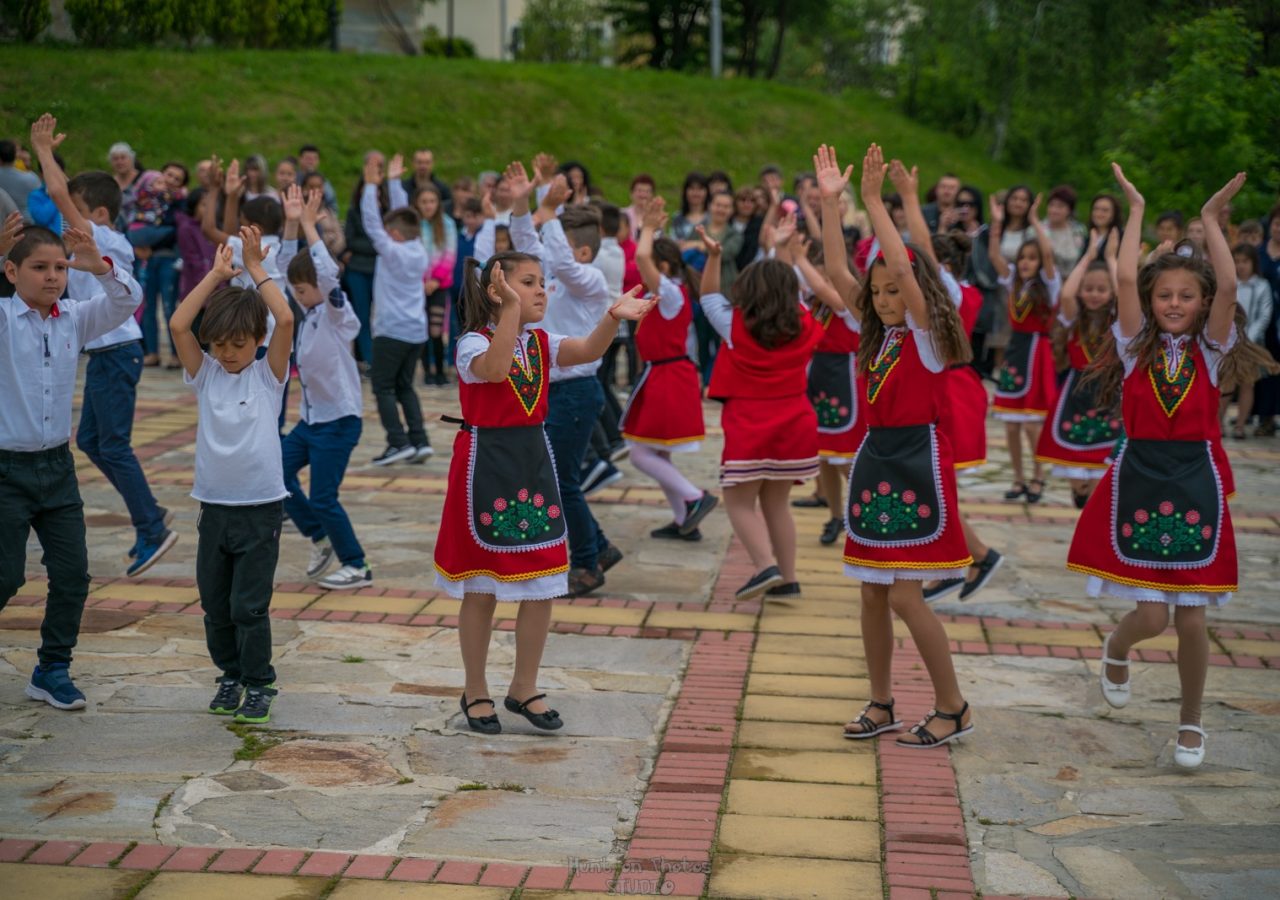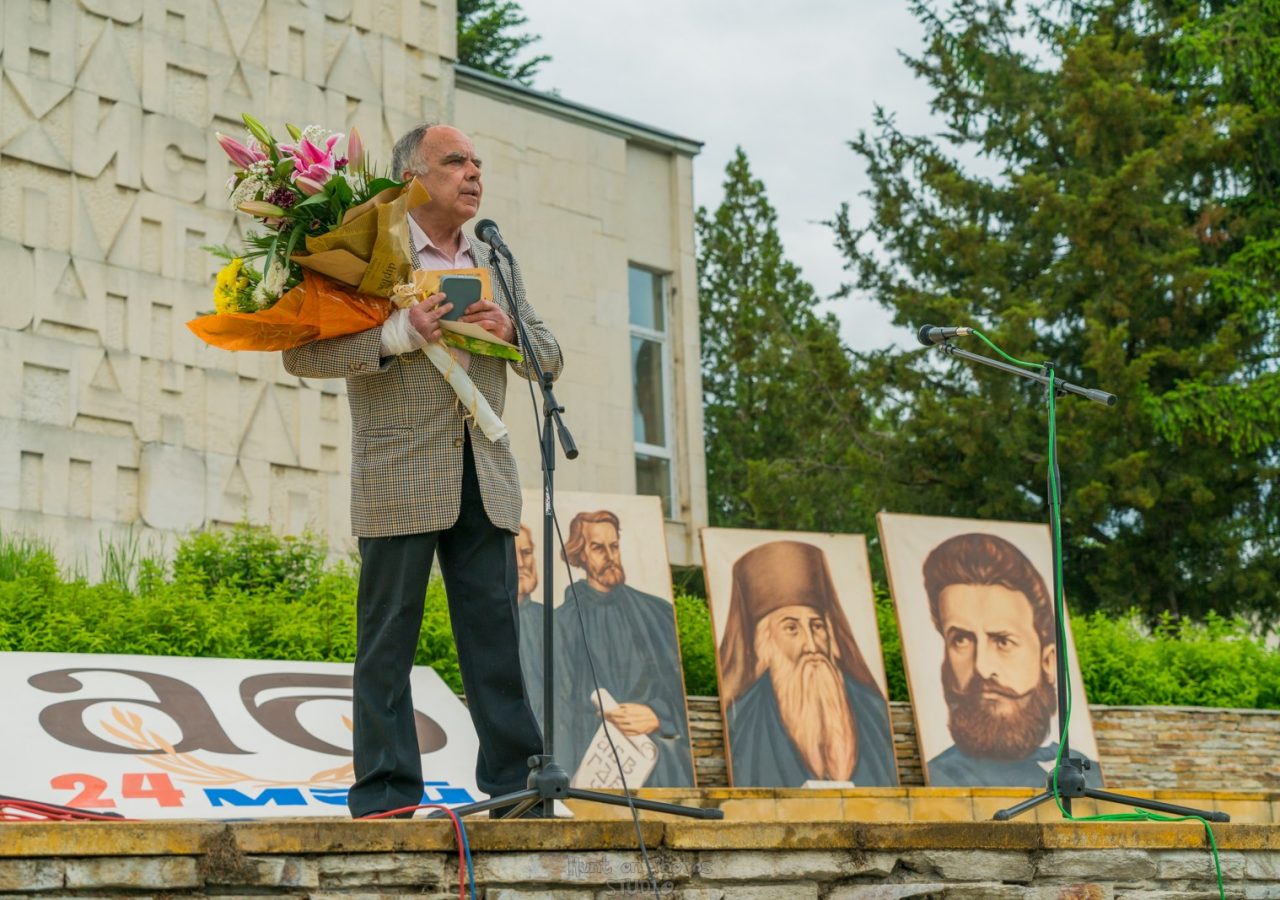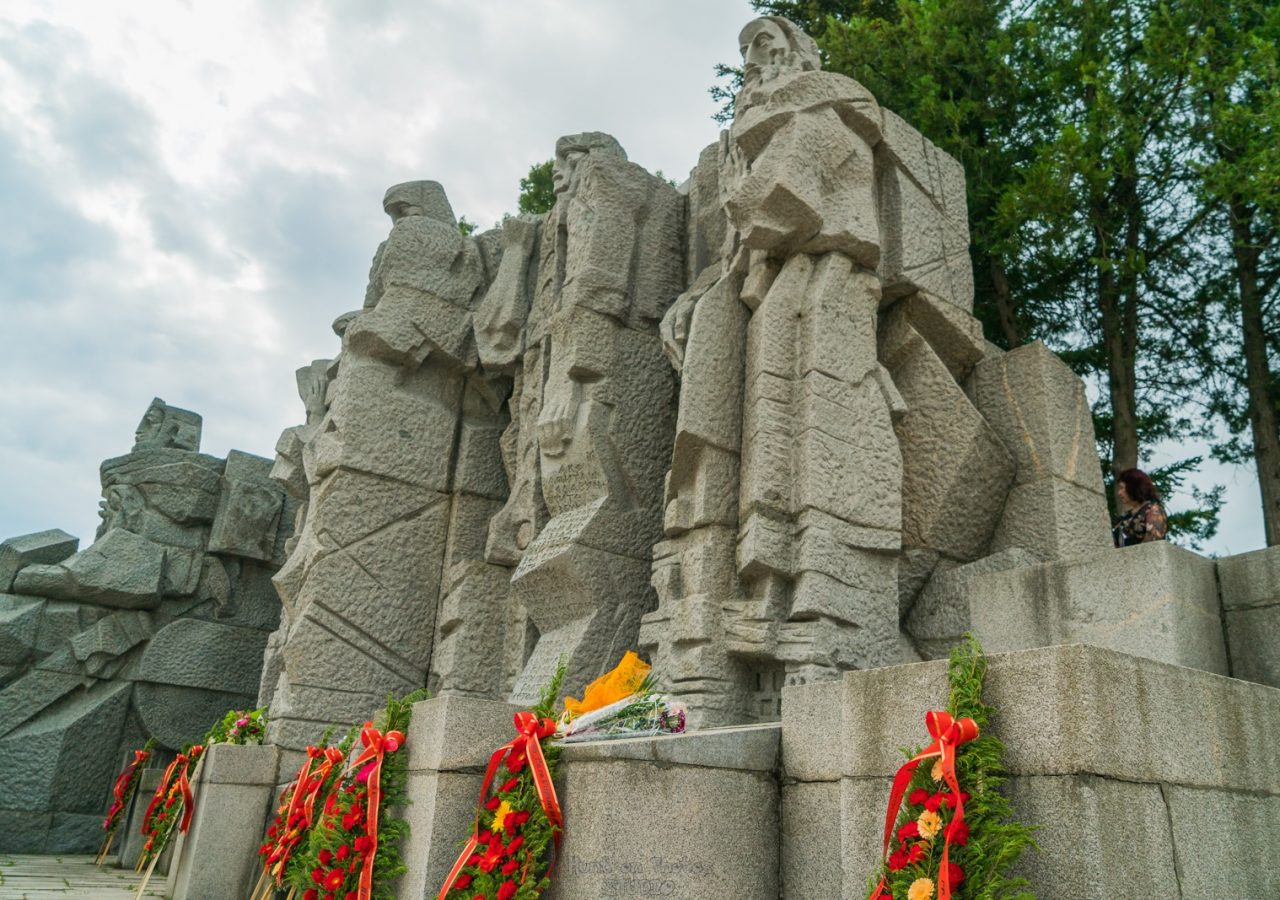DAY OF THE SLAVIC ALPHABET AND CYRIL AND METHODIUS BROTHERS
Celebration of May 24th
Tradition and Ritual
May 24th is a special day in Bulgaria, where the Slavic alphabet and Bulgarian culture are celebrated. On that day, the creation of the Slavic-Bulgarian alphabet, known as “Cyrillic”, is commemorated.
For Preslav, this day is also the day of the city. Indeed, the disciples of Cyril and Methodius were called by Czar Boris I to Preslav in the 9th century to continue the work that the alphabet.
On this day off there is a large parade of schools and chitalist of the municipality of Preslav. On this occasion, a municipal “Golden Age” prize is awarded each year for a special contribution to the field of science, education, culture, and sports within the municipality of Preslav.
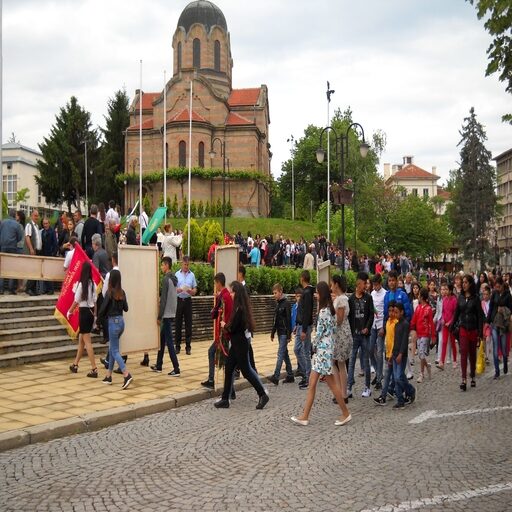
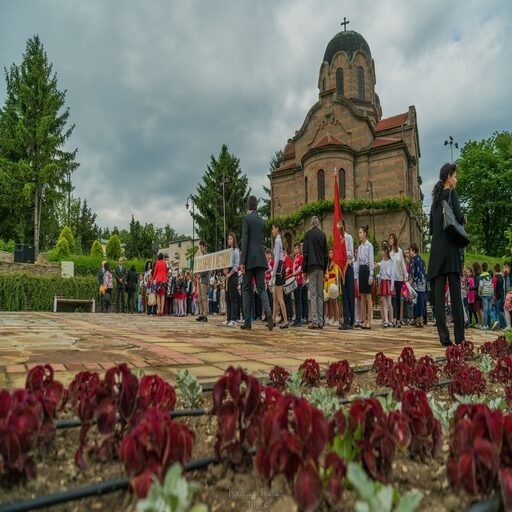
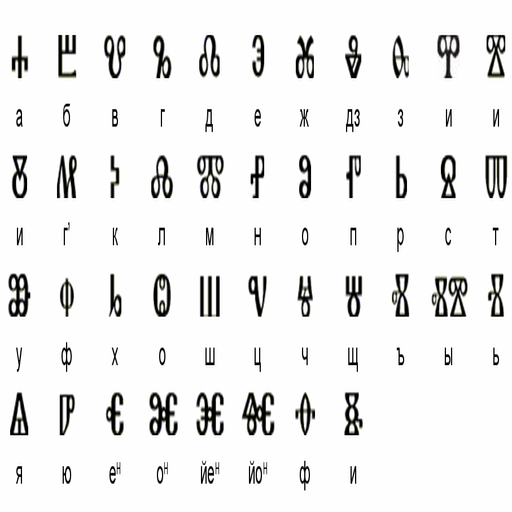
Who Were Cyril and Methodius? How Did They Create the Alphabet?
The Bulgarian Orthodox Church canonized them and their feast day is May 11. In 1980, Pope John Paul II proclaimed the saints as the patron saints of Europe.
In the historical texts, very few traces of their ethnic origin have been found. The brothers Cyril and Methodius would be the sons of a high Byzantine dignitary. A hagiography was written at the end of the 9th century. It is assumed that the two brothers would be Slavic. Methodius was reportedly appointed to the position of manager of a Slavic region within the Byzantine Empire while Constantine Cyril participated in various Byzantine political and religious missions as a theologian.
The brothers wish to translate part of the liturgical books into Slavic language, so they will create an alphabet. It was at the request of the Prince of Moravia Rostislav that the oldest Slavic alphabet was created.
In 855, the brothers retired to a monastery in Asia Minor where Methodius was appointed abbot. The researchers assume that this is when the brothers created the glagothique alphabet.
It is not possible to continue Cyril and Methodius’ work in Moravia. In the 9th and 10th centuries, Bulgaria was at the root of cultural development, and Bulgarian culture was transformed into European culture.
The glagothique alphabet was used in Bulgaria until the 11th century. Cyril and Methodius’ disciples then founded literary schools in Bulgaria, especially in Preslav, to continue the work. The Cyrillic alphabet then replaces the glagothique alphabet. The graphics are simple and easy, borrowing Greek letters unlike the first alphabet with special and strange characters. It is easy for the scribe to switch to Cyrillic, already proficient in the Bulgarian and Greek alphabets. The preaching and liturgical books in the Slavic alphabet have an anti-Byzantine character because they also replace the Byzantine clergy.
The two brothers are been proclaimed apostles because they have created new literature for pagan peoples. They introduce a new model of Christianity because they have the idea of serving the offices in the vernacular language, a language that everyone can understand.



